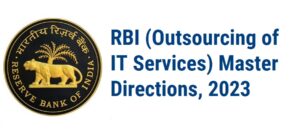Page Contents
Expanding your startup into foreign markets presents a global business expansion opportunity that can be daunting yet rewarding. It’s important to keep an informed eye on regulations, compliance, and technical aspects of the countries you want to venture into. The reasons for international business expansion are many. However, before extending your global footprint, startups must address the following key compliance considerations to be global business ready:
International Investment Regulation Compliance
Establishing lawful compliance with investment regulations and rules is a key factor in setting up a business internationally. Private capital investment structuring is vital for raising funds through Alternative Investment Funds (AIFs). Startups should also consider bilateral and multilateral agreements that promote foreign investment and provide substantial protection to investors. The growth of international business is driven by these agreements and policy announcements that encourage businesses to invest in foreign markets, such as the Indian government’s recent directive allowing Indian startups to offer public listings in foreign markets.
CapOne Research Case Study
CapOne Research is a thriving fintech startup that launched in 2016 and uses blockchain and AI to design payment systems. The company’s founder initially planned to incorporate the business in the US but faced roadblocks with visa compliance and structuring expenses.
Instead, CapOne took advantage of Estonia’s Startup Programme, gaining access to EU-based venture capital markets and angel investors. The ease of business and personnel availability were key factors in the company’s growth. CapOne’s experience is a valuable lesson in understanding the opportunities and challenges of international business.
Data Protection and Policy
Data protection and policy regulations vary between countries. It’s essential to adhere to strict data privacy guidelines and ensure proper security measures are in place. Incorporating the latest advancements in technology, such as blockchain and AI, to design payment systems provides exceptional opportunities for global business expansion.
As companies handle and process personal data, it is crucial to ensure strict compliance with processing guidelines under EU-GDPR privacy regulations, which are now considered a global standard for privacy protection. To comply with these regulations, business entities that handle personal data must follow specific consent, disclosure, and collection mechanisms. Moreover, these regulations may restrict the transfer of data outside the region from where it was collected.
Data privacy law and compliance are at the forefront of not just the technology industry but also the service and sales industry to ensure the free, fair, and safe processing of sensitive consumer data. Indian startups such as Paytm have taken positive steps to match global giants like Google and Facebook in ensuring data welfare and protection.
Paytm and Privacy Case Study
Paytm recognizes that in an era where data is ‘the new gold,’ regulatory authorities must create a strong consumer data protection framework that respects the privacy concerns of citizens. Paytm deems all financial data (KYC, Aadhar, and other identification-related biodata) as ‘Critical Personal Data’ and takes measures to store and process the same within India alone.
Likewise, startups wanting to expand to foreign jurisdictions can expect to deal with regulations that enforce cooperation and compliance in matters of private data. Paytm has expanded to Canada and Japan and is compliant with related data privacy regulations – Canada’s Personal Information Protection and Electronic Documents Act (PIPEDA) and Japan’s Act for Protection of Personal Information (APPI).
To summarize, the basic tenets that an enterprise must follow to ensure data protection include accountability, consent, limitation of use, disclosure, and retention, and data security systems.
Human Resources & Labour Law Compliance
Startups expanding into new markets must comply with local labour laws regarding employment contracts, minimum wage, and working hours. Companies must also be mindful of cultural differences in regards to communication and working styles. The advantages of expanding a business internationally are vast, but understanding the challenges and opportunities of international business is critical to success.
Each jurisdiction has specifics and standards on HR and Labour law that need to be incorporated into employee contracts and other agreements on personnel and conduct. Anti-Corruption policies and Insider Trading Disclosure mechanisms need to be in place to regulate fair and lawful business conduct. Startups that enter new countries often take advantage of ‘floating employee’ arrangements that constitute a network of consultants and independent contractors.
Intellectual Property
Intellectual property protection laws, such as patents, trademarks, and copyrights, differ between countries. Startups must protect their intellectual property by adhering to proper regulations to prevent infringement. Avoiding problems in international business is possible by investing in the right legal expertise and understanding the comprehensive international expansion strategy.
It is important to refile for intellectual property, such as trademarks, copyrights or patents, in a new territory to ensure global recognition. The business may either apply for the same individually in each country or go for a comprehensive filling such as that offered by the EU Intellectual Property regime that holds valid for all European Union countries. Trademark incorporation and registration in North America, as done by giants such as Flipkart and Myntra, is a route preferred not only to ease tax burdens in India but also to increase valuation and reputation in business.
Case Study
A very well-known startup in India recently started expanding in the UK and posted vacancy ads on LinkedIn. The public, at large, including some prospective recruiters mistook this Indian startup for a UK-based startup that had a similar sounding name. This came into the eyes of the UK-based startup and rounds of to and fro legal notices were ensued on the Indian startup. This delayed the Indian startup’s expansion plans and also cost a substantial legal fee on top of settlement offers for coexisting in the UK market.
Tax Obligations
Startups must also be aware of tax laws and obligations when operating in a foreign market. These can vary significantly depending on the nature of business and location. Engaging with authorities at different levels including legal and taxation experts will help startups establish a scalable international business expansion.
Tax structuring and management may help minimize tax obligations. Ensure that taxes deducted at the source such as employee payment and post-sale/service VAT are dealt with in a timely manner. Different geographies are subject to different rates and methods of taxation, with jurisdictions even incentivizing small to medium business entities that can take advantage of international agreements between states that support and ease business activities.
The Vodafone Tax Case: A Case Study on Global Expansion & Taxation
Vodafone International, a leading telecom giant based in Amsterdam, acquired Hutchison Telecommunications International Limited (HTIL), based in Hong Kong, by acquiring its subsidiary, CGP Investments (Holdings) Ltd based in the Cayman Islands. However, Vodafone’s entry to the Indian market through Hutch brought them under the Indian Income Tax authorities’ radar for Capital Gains Tax on CGP. As CGP was not based in India but held essential Indian asset companies in operation, a legislative change introduced in India, called ‘Retrospective Taxation,’ presented Vodafone with a liability of over INR 22,100 Cr.
Vodafone faced a prolonged legal battle in the highest Indian courts before the recent International Tribunal hearing. Vodafone was able to plead protection under India-Netherlands Bilateral Investment Protection Agreement (BIPA), and the tribunal ruled that India had breached its ‘guarantee of fair and equitable treatment.’
Acquisition Opportunities, Joint Venture/Cooperative Relationship
Exploring acquisition opportunities or joint ventures with established businesses in foreign markets can help startups navigate local regulations and establish a strong foothold in the market. Acquiring the right companies with the right international business expansion examples create both opportunities and challenges of international business from which startups can learn.
Acquiring foreign entities in similar fields to allow for expansion is now a popular way of global expansion for India’s biggest startups. One example is when Oyo acquired Amsterdam-based Leisure Group for €369.5 Mn, while Byju’s acquired US-based ‘Osmo’ for $120 Mn, making it the world’s biggest EdTech company.
InMobi Goes International: A Case Study
InMobi is a mobile advertising company that rose from humble beginnings in 2007 as an SMS-based service to become India’s first unicorn startup company. To extend its growth and resources, InMobi sought to operate in new markets by expanding resource and technical partnerships.
In 2018, InMobi strategically partnered with telecom giant ‘Sprint’ for digital marketing and data services to make inroads in the US market. Setting up offices in locations such as Kansas City and San Francisco, it acquired Pinsight Media, the mobile advertising branch of Sprint that operates and advertises across verticals, including consumer goods, retail, entertainment, and finance. The acquisition of Pinsight offers InMobi an infrastructure to combine network mobile services and integrating customer information, helping companies better target ads on smartphones to the right audiences. Naveen Tewari, Founder and CEO at InMobi, said, “this industry-first acquisition allows InMobi and Sprint to work on our respective strengths together and provides a global template for partnerships between advertising platforms and telcos.”
Conclusion
Expanding your startup globally can offer significant opportunities and pave the way for the growth of international business. Understanding the necessary compliance and regulations upfront is critical. Incorporating in business-conducive territories or exploring a startup accelerator program can be viable options for startups looking to go global. The opportunities and challenges of international business are numerous, but with the right international expansion strategy, startups can find success.
FAQ’s
Q: What is the major reason for international business expansion?
A: The major reason for international business expansion is to increase the market share, gain new customers, exploit new opportunities and diversify the risks involved in operating a business.
Q: What is an international business expansion example?
A: An example of international business expansion is when a company based in the United States establishes store locations in other countries such as China, Japan, and Italy.
Q: What are the four types of international business?
A: The four types of international business are exporting, licensing, franchising, and direct investment.
Q: What are the 5 stages of international business?
A: The five stages of international business are no direct foreign market involvement, export via an independent representative, the establishment of sales subsidiaries, production and sales subsidiaries, and a global service provider.
Q: What to consider when expanding a business internationally?
A: When expanding a business internationally, factors to consider are market conditions, cultural differences, currency exchange rates, taxes and tariffs, language barriers, legal and regulatory requirements, and logistics and infrastructure.
Disclaimer:
The content of this article is for information purpose only and does not constitute advice or a legal opinion and are personal views of the author. It is based upon relevant law and/or facts available at that point of time and prepared with due accuracy & reliability. Readers are requested to check and refer to relevant provisions of statute, latest judicial pronouncements, circulars, clarifications etc. before acting on the basis of the above write up. The possibility of other views on the subject matter cannot be ruled out. By the use of the said information, you agree that the Author / Treelife is not responsible or liable in any manner for the authenticity, accuracy, completeness, errors or any kind of omissions in this piece of information for any action taken thereof.










